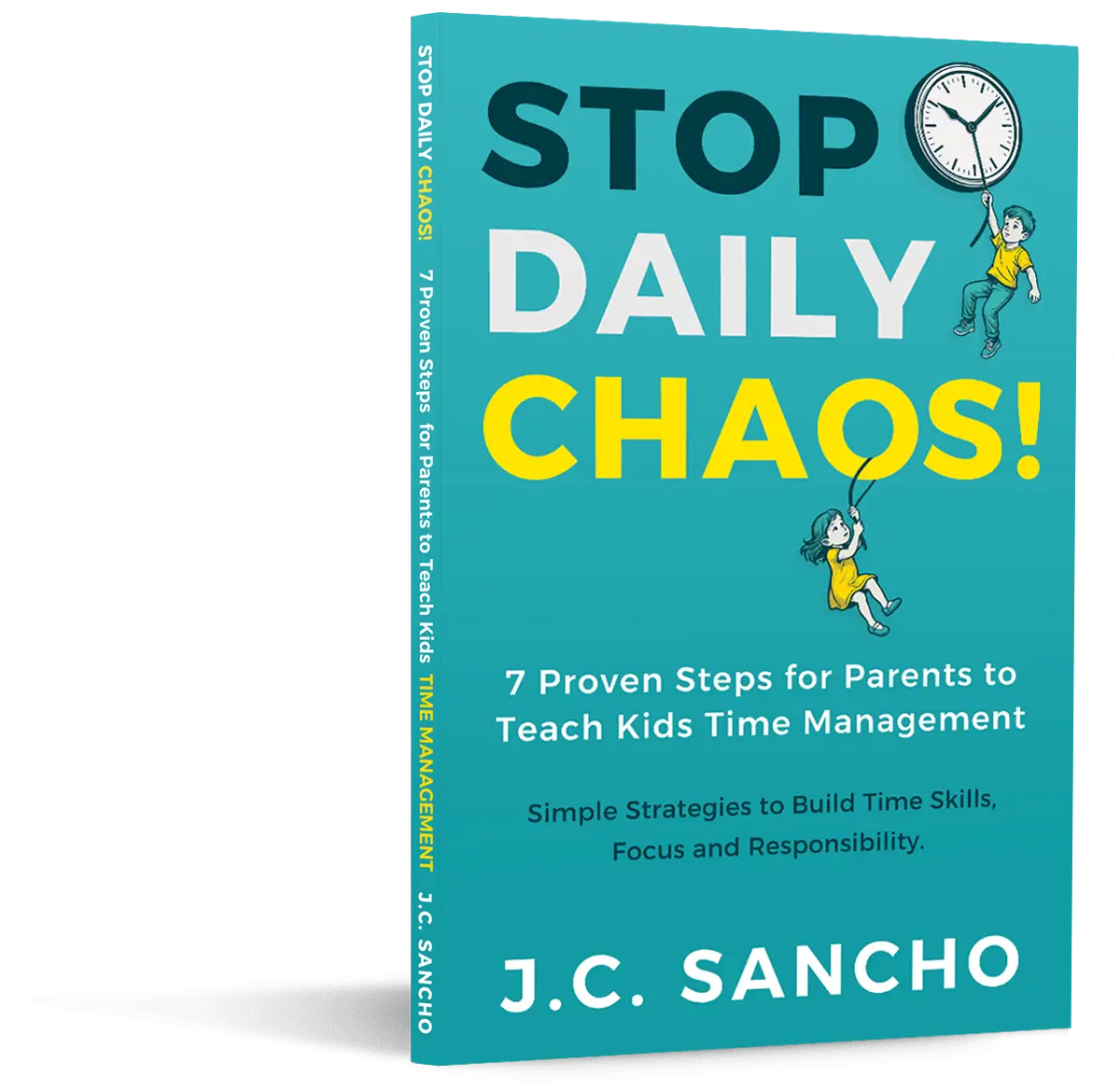Watching your teenager prepare for college can feel like watching a bird test its wings — thrilling, nerve-wracking, and filled with quiet prayers that they’ll soar. While academics matter, what truly determines whether your teen thrives isn’t just GPA or test scores. It’s how well they handle real-life responsibilities once no one’s there to remind them.
Before your teen leaves home, focus less on perfection and more on competence: can they manage their time, money, emotions, and relationships with confidence and maturity? Here’s what really prepares them for independence — and what actually works.
Financial Literacy: Teaching Real-World Budgeting
College often marks the first time teens control their own money. Without guidance, it’s easy for “just one coffee” or “a few rideshares” to turn into overdraft fees and stress.
Financial independence starts long before freshman orientation.
Here’s how to build money confidence:
- Make budgeting tangible: Sit down together and map out monthly expenses — dorm supplies, food, books, transportation, personal care, and entertainment. Show how each dollar has a job.
- Use real examples: Walk through your own household costs — internet, utilities, car insurance — to illustrate how daily choices add up.
- Practice with real money: Encourage your teen to earn through part-time work or summer jobs. Managing their own paycheck teaches value, discipline, and pride.
- Open a student bank account: Teach how to check balances, set up alerts, and understand credit versus debit.
- Discuss credit early: Explain credit cards, interest, and why paying balances in full matters. Many young adults fall into debt simply because no one showed them how it works.
Practical budgeting isn’t just math — it’s mindset. It teaches teens to live intentionally, not impulsively.
Time Management: The Foundation of Independence
Freedom without structure can overwhelm even the most responsible teen. College life means balancing classes, assignments, part-time work, social life, and personal care — all without reminders from parents or teachers.
Help your teen master time management before they go:
- Use planners or apps: Tools like Google Calendar, Notion, or Todoist make visual scheduling simple. Encourage them to block out study times, meals, and sleep — not just deadlines.
- Promote routines: Consistency builds discipline. Suggest they anchor their day with set times for waking up, studying, and resting, even when schedules change.
- Teach prioritization: Not every task deserves equal effort. Show them how to identify what’s urgent versus important, using the Eisenhower Matrix — a tool professionals use to stay focused under pressure.
- Emphasize follow-through: A planner only works if it’s used daily. Model this habit yourself — keep shared family calendars and review them together weekly.
When time feels manageable, so does stress. That skill becomes their anchor in the chaos of exams, group projects, and late-night study sessions.
Self-Care and Health Awareness: The Most Overlooked Skill
Many college students stumble not because of academics, but because of exhaustion, poor nutrition, or mental burnout. Independence isn’t sustainable without self-care.
Help your teen build habits now that will serve them later:
- Nutrition: Teach a few simple, healthy meals they can make in a dorm kitchen — pasta with vegetables, overnight oats, or stir-fries. Show them how to read labels and shop on a budget.
- Sleep: Explain that rest is non-negotiable for focus, mood, and immunity. Encourage setting realistic sleep schedules rather than all-nighters.
- Exercise: Encourage movement — walking, yoga, sports, or gym time. Physical activity is one of the most reliable stress reducers for college students.
- Mental health: Normalize asking for help. Discuss how to reach out to campus counseling services or trusted adults if anxiety or depression arises.
- Stress management: Practice mindfulness together — deep breathing, journaling, or meditation apps like Calm or Headspace. These tools can prevent burnout before it starts.
When teens understand that self-care isn’t selfish, they develop resilience — the quiet confidence that helps them recover from hard days and academic setbacks.
Social and Communication Skills: Thriving Beyond Academics
College is more than lectures — it’s an immersive social world. Being able to communicate clearly, respectfully, and confidently makes every aspect of campus life smoother.
Encourage your teen to practice:
- Active listening: Pay full attention when others speak. Nod, ask follow-up questions, and summarize key points — habits that earn respect in classrooms and friendships.
- Assertiveness: Teach them how to express opinions and boundaries politely. Whether negotiating roommate chores or saying no to peer pressure, assertiveness builds safety and confidence.
- Email and professional communication: Review how to write concise, respectful emails to professors and employers. Small details — subject lines, greetings, gratitude — make lasting impressions.
- Conflict resolution: Role-play scenarios like roommate tension or group project disputes. Show how empathy and calm tone often solve problems faster than confrontation.
These interpersonal tools carry lifelong value — they turn awkward freshmen into grounded adults who navigate community, teamwork, and leadership gracefully.
Decision-Making and Problem-Solving
In college, independence brings countless decisions — big and small. What to major in, who to trust, whether to party, when to study. Teaching decision-making before they leave builds judgment.
Try this approach:
- Encourage ownership: Let your teen make real decisions at home — managing their schedule, planning family meals, or handling minor purchases. Experience is the best teacher.
- Discuss consequences: Every choice has trade-offs. Talk about cause and effect rather than issuing commands. Ask, “What might happen if…?”
- Practice problem-solving: When challenges arise, resist jumping in immediately. Instead, guide them to brainstorm solutions, evaluate options, and choose one confidently.
- Teach resourcefulness: Show them how to research, ask questions, and seek help. Knowing when to ask for advice is just as mature as independence itself.
Strong decision-making transforms uncertainty into empowerment — a skill that defines adulthood more than any grade ever could.
Digital Responsibility and Safety
Our teens live much of their lives online — a space where small mistakes can have lasting consequences. College amplifies that risk with greater freedom and visibility.
Essential lessons to reinforce:
- Digital footprint awareness: Everything posted online is permanent. Encourage them to think before sharing personal information or photos.
- Cybersecurity: Use strong passwords, avoid public Wi-Fi for banking, and enable two-factor authentication on all accounts.
- Screen balance: Set phone-free times during study or sleep hours. Overuse of devices can quietly drain productivity and mental health.
- Online etiquette: Teach empathy in digital interactions. Respect for others extends to group chats, comments, and social media.
Digital maturity prepares teens to use technology as a tool for growth — not distraction.
Resilience: The Real Secret to College Success
No list of life skills is complete without the one that underpins them all: resilience.
College life brings stress, mistakes, and failure — all necessary parts of growth. What matters most is how teens respond.
Help build resilience by:
- Normalizing setbacks: Share your own stories of failure and recovery. It helps teens understand that struggle isn’t weakness — it’s training.
- Modeling adaptability: Let them see you handle unexpected problems calmly. They’ll learn emotional regulation by watching you.
- Encouraging self-reflection: Ask open-ended questions like, “What did you learn from that experience?” rather than “Why did that happen?”
Resilience can’t be taught overnight — it’s built through time, trust, and trying again.
Common Mistakes Parents Make in Preparing Teens
Even well-intentioned parents can accidentally hold their teens back by over-helping. Awareness helps you step aside at the right time.
- Doing everything for them: If you handle every appointment or reminder, they won’t learn accountability.
- Focusing only on academics: Life skills and emotional maturity are equally crucial to college success.
- Rescuing too quickly: Let them face small discomforts. Struggling with missed deadlines or budgeting errors teaches natural consequences.
- Delaying independence: Give gradual autonomy — chores, financial responsibilities, and decision-making — before they leave home.
Letting go doesn’t mean abandoning them; it means trusting the foundation you’ve built.
Practical Tools and Resources
A few tools can make teaching life skills easier and more engaging:
- Apps: Mint (budgeting), Notion (organization), Google Calendar (planning), Headspace (mental wellness).
- Books: “Adulting 101” by Lisa Henry or “How to College” by Andrea Brenner and Lara Schwartz.
- Online Resources: Common Sense Education (digital safety), CollegeBoard BigFuture (college prep).
Encourage your teen to explore these on their own — independence grows from curiosity, not control.
Questions Parents Often Ask
Q1: When should I start teaching these skills?
Ideally, in early high school. But it’s never too late. Even small habits learned senior year make a difference.
Q2: What if my teen resists?
Frame these lessons as empowerment, not control. Teens respond better when they see skills as freedom, not supervision.
Q3: How can I balance support with independence?
Use a coaching mindset — ask guiding questions instead of giving answers. Let them experience manageable consequences.
Q4: Should my teen work during college?
If manageable, yes. Even part-time work builds discipline, budgeting habits, and appreciation for time value.
Q5: What if they still struggle in college despite preparation?
That’s normal. College is a training ground for real life. Stay supportive, not judgmental — they’ll find their footing with time and experience.
The Takeaway
Raising a college-ready teen isn’t about creating a flawless adult. It’s about shaping a capable one — someone who can manage stress, make choices, and adapt with grace.
The best preparation for college isn’t a checklist of skills but a steady belief in their ability to figure things out.
When you teach your teen to cook a meal, plan a week, balance a budget, or ask for help, you’re not just preparing them for campus life — you’re preparing them for life itself.
Further Reading: Transitioning From High School To College – American Academy of Child & Adolescent Psychiatry



